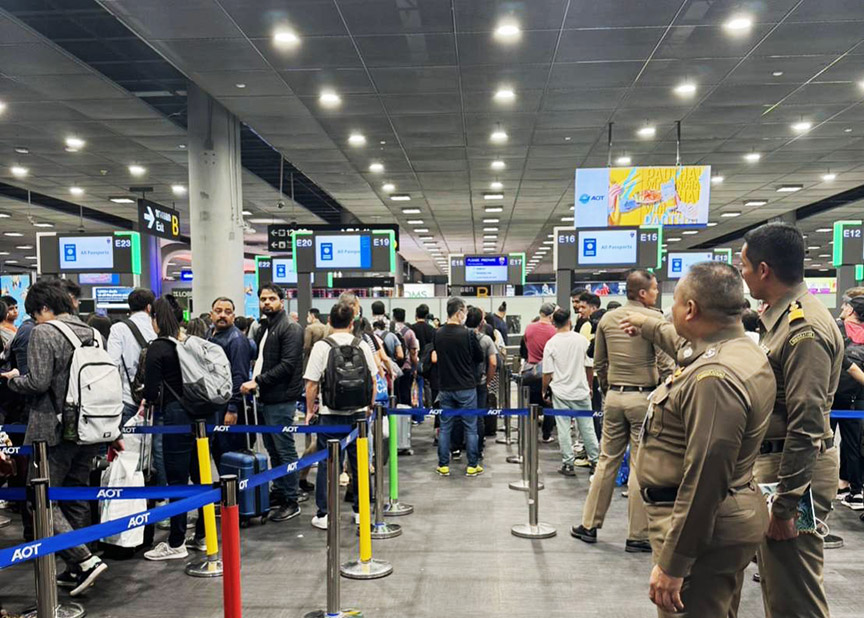Thai authorities are reviving plans to impose a tourist tax on most foreigners entering the country. Tourism Minister Sorawong Thienthong announced that this long-delayed scheme requires an additional six months of planning to establish an automated payment system, being developed in partnership with Krungthai Bank.
The proposed tax is set at 300 baht for air arrivals and may also apply to land borders, although it was initially expected that tourists entering by land would pay only 150 baht. Previous attempts to collect this tax faced challenges, such as long queues caused by card processing failures, cash change issues, and disputes between travelers and immigration officers.
The government is now working on a comprehensive plan to integrate tax collection with entry processes through an advance-payment computerized system. Visa-exempt tourists, visa applicants, and those with re-entry permits would eventually pay the tax as part of the online Electronic Travel Authorization (ETA) set to launch next year. The success of this system will depend on its ability to handle thousands of applications daily. Initially, the scheme may be piloted with visa-exempt tourists granted 60-day stays, while other foreign entrants would pay through a website or app.
Most foreigners will need to pay this tax with exceptions for infants under two, transit passengers, diplomats, and individuals with authorized Thai work permits. Long-stay visitors, including retirees and non-immigrant visa holders, will also be subject to the tax. The status of 10-year Long Term Residence holders and permanent residents is reportedly under review.
The tourist tax aims to fund repairs and upgrades to tourist sites, with a portion—10-20%—earmarked for compensation in case of death or injury to overseas visitors. The scheme is intended to address overtourism by directing funds to less popular destinations outside major hotspots like Bangkok, Phuket, and Pattaya. However, insurance providers have yet to be determined.





